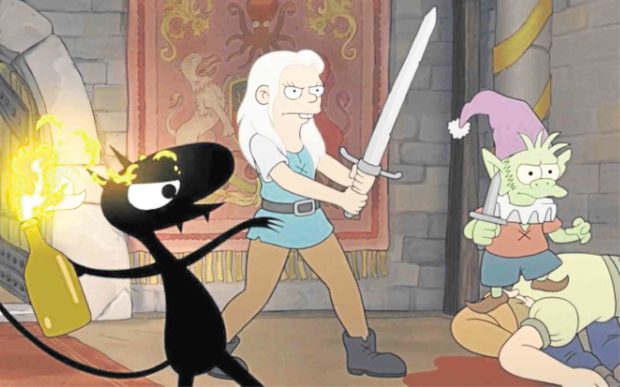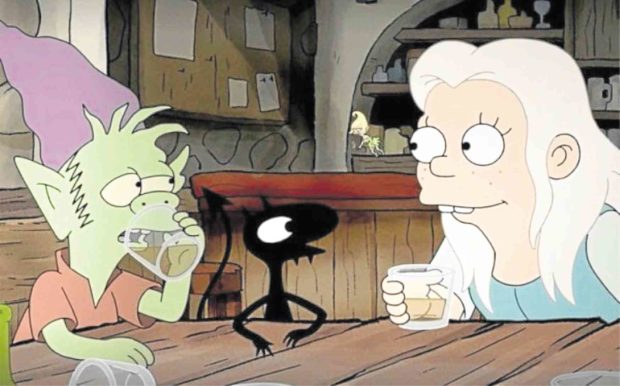From Matt Groening, the creator of “The Simpsons” and “Futurama,” comes the medieval fantasy world of “Disenchantment,” a serviceable comedy-adventure series centering on an uncontrollable, party-loving princess who wants nothing to do with the strict demands of royalty.
Bean (voiced by Abbi Jacobson) is the rebellious young woman who would rather go drinking and gambling in taverns than attend dull royal activities, much to the chagrin of her ill-tempered dad, King Zøg (John DiMaggio), the ruler of Dreamland.
Bean is dreading her impending wedding, as she is betrothed to a prince from another land. But, the arrival of an elf, Elfo (Nat Faxon), and the demon mistaken for a talking cat, Luci (Eric Andre), helps disrupt the festivities, allowing her to skip the arranged marriage.
With her odd new companions, Bean is more dedicated than ever to having fun—whether it’s carousing, or sampling strange hallucinogens, they get into all sorts of mischief that the less-enlightened era has to offer.
The 10-episode Netflix series, like a weird cross between a more adult incarnation of Groening’s shows with “Adventure Time,” seems like the sensible next step for the show creator. After mirthfully exploring the vast sci-fi world of “Futurama” and ongoing cultural mores in the still-airing “Simpsons,” he now pokes fun at a fantasy realm, designing a simple saga set in a less-sophisticated but magical era.
Joining him are frequent collaborators, voice actors whose contributions provided the older projects with memorable and disparate-sounding characters.
“Disenchantment” nicely parodies fairy tales and their often inherently male perspectives, offering a fresh and timely princess protagonist who doesn’t fit the traditional mold at all.
Bean is described as a buck-toothed degenerate, but is still a cool heroine. Her inane adventures are often influenced by her desire for independence, and the hope that her constantly disappointed father will be pleased with her, at last.
The humor is mild, risqué and “Simpsons”-esque, often going for easy snickers while utilizing flexible animation techniques. And while the cartoon people here also look like the stylized oddballs that populate Groening’s other shows, the lively visuals offer a funky and fun world where almost any joke can be set up.



